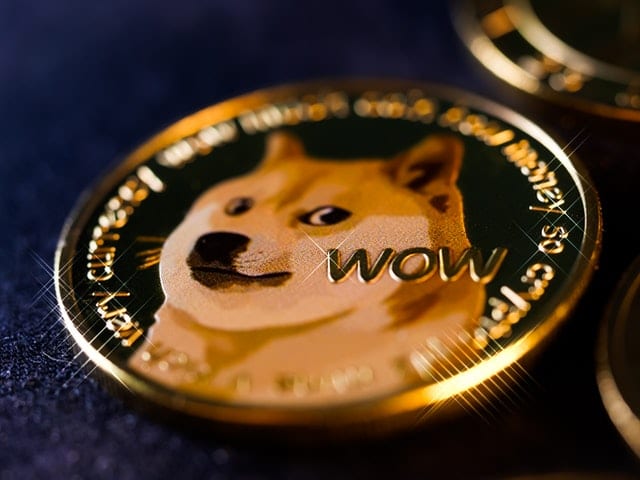What are Altcoins? What are the Types? – Explained
The world of Cryptocurrencies emerged in 2009 when Bitcoin was considered nothing more than an interesting concept. In the following few years, Bitcoin managed to turn that initial curiosity it had garnered into serious attention and that is when the world of Cryptocurrencies blew up!
Throughout the years’ Bitcoin has dominated and influenced the entire cryptocurrency market but it isn’t the only cryptocurrency out there, is it? At the time of writing, there are over 9000 Cryptocurrencies in circulation with more that launch almost every day!
Today, we will be talking about those thousands of other crypto coins that are collectively known as Altcoins. In case you missed this, the word Altcoin consists of a combination of two words: Alt & coin. This comes from the phrase “Alternate to Bitcoin”.
So what exactly are Altcoins? As the name suggests they’re simply any and every cryptocurrency that isn’t Bitcoin. From highly-developed tokens like Ethereum to meme coins like Shiba Inu, altcoins encompass all of them!

Types of Altcoins:
These thousands of altcoins can further be sub-divided into a few categories. Let’s take a look at them below to better understand these digital assets that are slowly but surely changing the world! (Note: Altcoins can be part of one or more of these categories)
Proof-of-Work (PoW) Altcoins:
This category consists of those altcoins which follow the same Proof-of-Work (PoW) model as Bitcoin. Hence, they share the most likeness to Bitcoin.
Transactions made via these altcoins are verified and upheld through a computer-mining system. As an incentive to keep miners, there are financial rewards in return for successfully mining a proof-block. (This may sound a bit confusing but rest assured as we will be talking about this in detail in another article soon.)
Proof-of-work modeled altcoins are the most prevalent, primarily due to the higher level of security it provides and the fact that Bitcoin uses its consensus model. As a result, most of the coins launched right after Bitcoin are based on it. A couple of common examples of altcoins following this model are the infamous Litecoin & Bitcoin Cash.
Recently, there have been concerns regarding the fact that this process is energy-intensive and has adverse effects on the environment. If you’ve been following Crypto-related news for a while you might have heard of Elon Musk first accepting Bitcoin as payment for his Tesla cars and then revoking the offer a few weeks later. This reversal was influenced primarily by the adverse effects of the energy-intensive Bitcoin-mining process.1

Proof-of-Stake (PoS) Altcoins:
Transactions made by altcoins in this category aren’t validated by miners spread across the globe. Instead, a proof-of-stake consensus mechanism follows a model that entitles specific people, known as ‘Validators’, to validate and uphold these transactions.
These validators are appointed by holders of the coin who aren’t validators themselves. Similar to miners, validators also receive financial rewards in the form of tokens for providing their services in maintaining the system. Holders of the coin, who intend to hold the coin for the long term also have the ability to earn interest on their coins, much like holding a bond. The process, called staking, is where holders of the coin store their coins with the validator and earn rewards.
PoS based altcoins are less energy-intensive and significantly more scalable than PoW altcoins, hence quite a few new tokens are employing its algorithm, such as Tron(TRX), Tezos (XTZ) etc.
DeFi Altcoins:
The term DeFi consists of two words; Decentralized Finance.
This category of altcoins consists of tokens that permit their users to make traditional financial transactions. A great example to better understand this is a coin, currently holding the #6th rank as per market cap; Ripple (XRP). Ripple’s use case recently expanded into DeFi a few months ago.
The Ripple Network is essentially a platform that provides a digital payment network for financial transactions. It primarily targets helping banks and other institutions to make international transactions such as payments & remittances: swift, cost-effective, and reliable.
Moreover, DeFi altcoins enable its users to lend, borrow, and even pool their tokens directly. These tokens essentially have a platform (such as the Ripple Network in our example above) on the back end and a native token (XRP) that runs on that platform.
When coins are initially launched, they’re seldom available on large exchanges such as Binance or Coinbase. If you’ve ever purchased or tried to purchase these tokens in their initial days, you might be familiar with exchanges on the trust wallet such as Pancake Swap and Uniswap. The tokens that run on these exchanges i.e. CAKE & UNI respectively also belong to the family of DeFi altcoins!
Stable coins:
From a practical point of view, currencies need to be stable and have little volatility. This doesn’t mean that the relative prices of currencies should be fixed; rather they should follow the natural market mechanisms of inflation, supply & demand while maintaining an orthodox amount of volatility.
To provide some stability and reliability to the new age of Cryptocurrencies, the idea of stable coins was proposed and the first stable coin, Tether, was launched in 2014. Currently holding the rank of #4th, we can see that this concept ended up being quite popular. These coins are indeed the best way to hedge oneself against market volatility.
For a currency to be stable, it requires that its value be pegged to that of another currency or commodity such as gold. In Tether’s (USDT) case, its value is pegged to that of the US Dollar. Hence, the value of one USDT is always equal to the US Dollar. This allows for minimal room for the price of USDT to fluctuate. Some common examples of stable coins you may be familiar with are Binance USD, USD coin, and DAI.
Meme coins:
Lastly, we have a new generation of Cryptocurrencies, commonly known as ‘memecoins’ or by the slang ‘sh&t coins’. Among them the most renowned of course is the infamous token; Dogecoin, which rose into the limelight due to continuous appraisals and endorsements by the Technoking of Tesla; Elon Musk.
It’s ironic that an altcoin launched as a meme has become anything BUT a meme. Especially with the huge gains it recently witnessed. Soon after, the crypto market went haywire along with various similar coins launched. The most notable among these are Safemoon & Shiba Inu.
These coins are essentially a gamble and have no utility. At least, that wasn’t the intention during their creation. They’re often a joke, a meme, or something that has no serious purpose. Hence, it’s best to have caution with altcoins of any variety.

Conclusion:
To conclude, altcoins are a great way to diversify your investment portfolio and reduce the overall risk attached to it. As they were created after the advent Bitcoin, they often improve upon Bitcoin’s shortcomings and loopholes. Hence they might prove more useful in the long run.
Most altcoins have an enormous supply of coins as compared to Bitcoin; this gives them greater practical utility as dealing in whole numbers while making transactions with a currency is more desirable and practical than buying something for 0.001 BTC.
However, keep in mind that most altcoins do not have a proven track record. With how easily these can be launched into the market, the chance of any new altcoin being a scam is high. The bottom line is, investing in altcoins for diversification purposes is a great option but never put in your money before doing your homework!
If you would like to read more on Bitcoin or Blockchain, check one of these articles out!
- What is Satoshi and Bitcoin? – Explained – https://www.mythmoney.com/what-is-satoshi-and-bitcoin-explained/
- What is Blockchain Technology? – Explained – https://www.mythmoney.com/what-is-blockchain-technology-explained/
Helpful Links (superscript number references, also known as sources)
- Elon Musk says Tesla will stop accepting bitcoin for car purchases, citing environmental concerns – https://www.cnbc.com/2021/05/12/elon-musk-says-tesla-will-stop-accepting-bitcoin-for-car-purchases.html

Hamza has been passionate about the subjects of finance, investment & the stock market ever since he read his first book encompassing the 3 respective niches: The Intelligent Investor by Benjamin Graham. He’s been investing, analyzing, and writing articles on the stock market, cryptocurrencies, real-estate & commodities for over 2 years.

